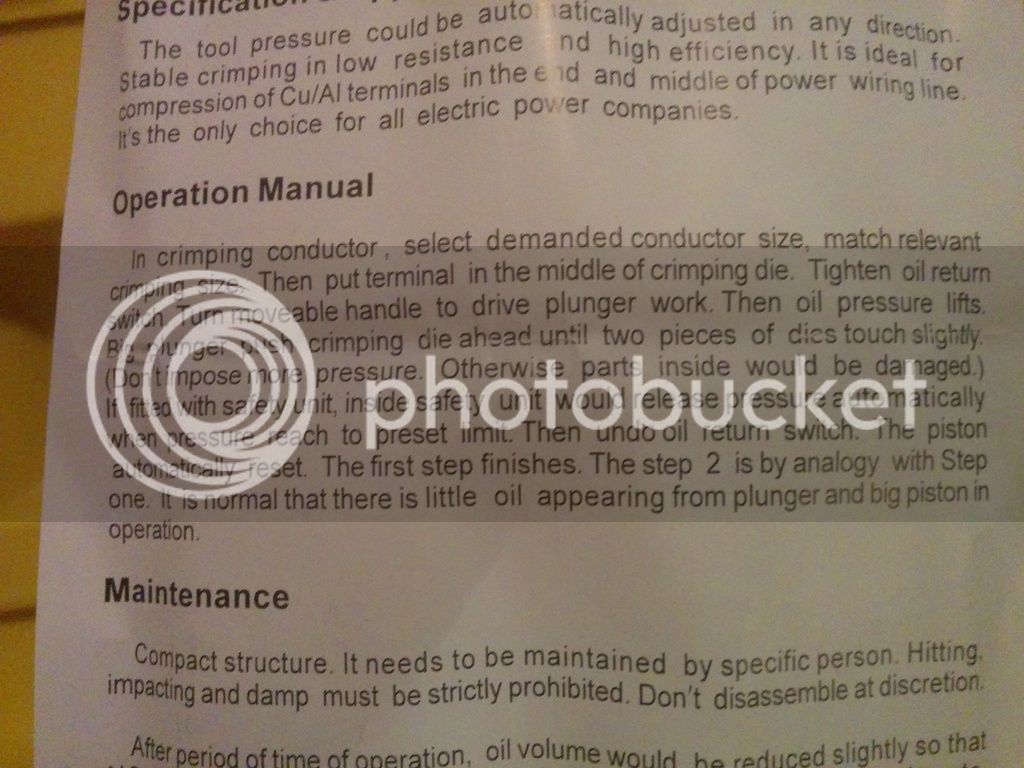I picked up a hydraulic crimper on Cyber Monday special for $40 and it was just delivered. I haven't used it yet, but the instructions had me laughing...
[img=300x300]http://i465.photobucket.com/albums/...ads/IMG_20161204_182153_zpsonch5g2o.jpg[/img]

My favorite lines: The Step 2 is by analogy with Step one.
Don't disassemble at discretion.
[img=300x300]http://i465.photobucket.com/albums/...ads/IMG_20161204_182153_zpsonch5g2o.jpg[/img]

My favorite lines: The Step 2 is by analogy with Step one.
Don't disassemble at discretion.










































































